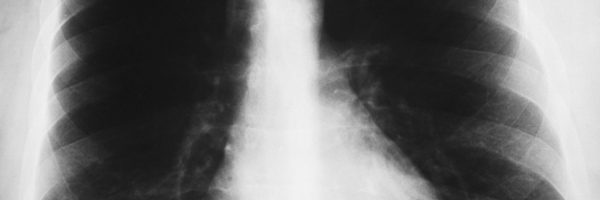Pneumonia Treatment
What is pneumonia treatment?

Your lungs are composed of many branches of airways. The smallest branches are called bronchioles. At the end of the bronchioles are air sacs, covered with many blood vessels (called capillaries). This is where the oxygen gets into the blood.
Pneumonia is an infection of the air sacs in the lungs. The air sacs are filled with fluid or pus making it difficult for oxygen to get into the blood. The infection can be caused by bacteria, fungi or viruses.
Pneumonia can range in severity from mild to life-threatening and affects particularly the following groups of people:
· infants and young children
· people older than age 65
· people with existing health issues or compromised immune systems.
When should I see a specialist for pneumonia treatment?
You may wish to seek medical help from a respiratory physician if you have any or combination of the following symptoms:
· a persistent cough with pus-filled phlegm
· breathing difficulties
· chest pain
· fever
As pneumonia affects the following high-risk groups in particular, it is especially important that they see a specialist promptly:
· seniors older than age 65
· children younger than two years old with signs and symptoms listed above
· people with an existing health condition or compromised immune system
· people receiving taking medication that suppresses the immune system such as immuno-suppressants or chemotherapy
· people who have existing heart or lung conditions
Did you know?
Pneumococcal vaccines protect against the bacteria Streptococcus pneumoniae which can cause pneumonia. Since pneumonia often follows the flu, an annual flu vaccination is also helpful.
The best way to prevent pneumonia is to take advantage of both the flu and pneumococcal vaccinations. From 1 Nov 2017, Medisave can be used to pay for these vaccinations¹.
What are the complications of pneumonia?

Complications can occur even if people receive treatment, particularly if they are part of the high-risk groups. Examples of such complications include:
· Bacteremia is a condition where bacteria may enter the bloodstream from the lungs and spread to other organs, causing them to fail.
· Breathing difficulties requiring the use of a machine (called a “ventilator”) to help you breathe
· Pleural effusion where the fluid accumulates around your lungs which if infected will require drainage through a tube in the chest or surgery
· Development of a lung abscess where pus accumulates in a lung cavity. This is usually treated with antibiotics or drained through a long needle or surgery.
How should I prepare for my appointment?
The respiratory physician will discuss your personal and family history with you. Your specialist is likely to ask questions regarding your symptoms, if you are a smoker, exposed to chemicals that might irritate your lungs, been around any sick people, have any other health condition, any recent colds or flu, recent travel history and if you had pneumonia vaccinations.
The following information should be prepared for the appointment:
· Your symptoms and how long you have had these symptoms
· All medication currently being consumed including dosage, vitamins, and other supplements
· You and your family’s medical history including any recent laboratory tests, scans or x-rays
The respiratory physician will also perform a physical examination to listen to your lungs as you breathe, to check for abnormal crackling sounds that suggest pneumonia. Your specialist may order tests such as a
· blood test to confirm an infection and identify the type of organism causing the infection.
· chest X-ray to determine if you have pneumonia or another lung condition
· pulse oximetry to measure the level of oxygen in your bloodstream as pneumonia could make it difficult for your body to receive enough oxygen
· sputum test to determine if the mucus from your lungs indicates a bacterial infection that can be resolved by antibiotics.
What can I expect during pneumonia treatment?

Treatment for pneumonia involves curing the infection and preventing complications. Specific treatments will depend on your overall health condition and type of infection. Some of the treatment options may include the following:
· antibiotics to treat bacterial pneumonia
· cough medicine to soothe your cough allowing you to rest
· fever relief medications
What happens after my pneumonia treatment?
To help in your recovery, you should:
· get plenty of rest to avoid pneumonia from coming back. Check with your respiratory physician on when you are allowed back to your daily activities.
· drink plenty of water, to help thin the mucus in your lungs.
· complete the course of any medications (especially the antibiotics) your doctor prescribed for you.
1. Singapore Ministry of Health. MOH establishes National Adult Immunisation Schedule; Extends use of Medisave for Vaccines under the Schedule | Ministry of Health. https://www.moh.gov.sg/content/moh_web/home/pressRoom/pressRoomItemRelease/2017/moh-establishes-national-adult-immunisation-schedule–extends-us.html. Accessed December 12, 2017.

